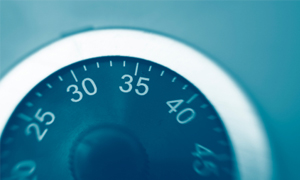Ways to Speed Up Your Internet Connection

Last updated: 24th July 2023.
Slow internet is annoying, but you can make it faster by doing easy things.
1. Prevent unauthorized access
To ensure that your wireless internet connection is secure, it's important to set up a password. If you leave your connection unsecured, you may be vulnerable to unauthorized users who can easily connect to your network and use your internet connection without your permission. It's always better to be safe than sorry, so don't take any chances and make sure your wireless network is properly secured.
2. Perform PC maintance
It's important to keep your computer in good health to ensure a smooth internet browsing experience. Factors such as the size of your hard drive, available disk space, and memory can all impact your internet speed. Regularly performing maintenance tasks such as clearing out temporary files and running virus scans can help keep your computer running smoothly.
3. Check for malware
It's essential to protect your computer from malware, viruses, and spyware to maintain a smooth internet browsing experience. These malicious programs can significantly slow down your internet connection, and severe infections can even cause you to lose connectivity altogether. Spyware is especially notorious for using up your internet connection, so it's crucial to regularly run virus scans and invest in reliable antivirus software to keep your computer healthy and your internet connection speedy.
4. Find a faster browser
Have you ever considered that some internet browsers are faster than others? It's true! You might be surprised to learn that Microsoft Edge is notoriously slow compared to other options. If you're experiencing sluggish internet connection speeds, it might be worth installing and trying out a few different browsers on your computer to see if there's any improvement. Doing this, along with regular virus scans and having reliable antivirus software, can help keep your computer healthy and your internet connection speedy.
5. Upgrade your plan
It's possible that your internet service provider (ISP) plan has become outdated if you've been using it for more than six months. ISPs often upgrade their customers' accounts without any additional charge, so it might be worth checking with your provider to see if you're eligible for an upgrade. This, along with trying out different internet browsers and keeping your computer protected with reliable antivirus software, can help ensure that you have a fast and healthy internet connection.
6. Complain to your ISP
If you've tried troubleshooting your computer, router, and telephone line, and they all seem to be working fine, it's possible that your internet service provider (ISP) is the problem. It's always a good idea to get in touch with your ISP and explain the issues you're experiencing. Most ISPs are willing to help improve the connection because they value their customers and don't want to lose them. They may even be able to diagnose the problem remotely without having to send a technician to your home.
7. Move ISP
It's important to exhaust all troubleshooting options before considering changing your Internet Service Provider (ISP). However, if after trying everything you still experience persistent connection issues, it may be time to consider switching to a different ISP. Research different options in your area and choose one that has a reputation for providing reliable service. Don't forget to check for any cancellation fees or contract requirements before making the switch.